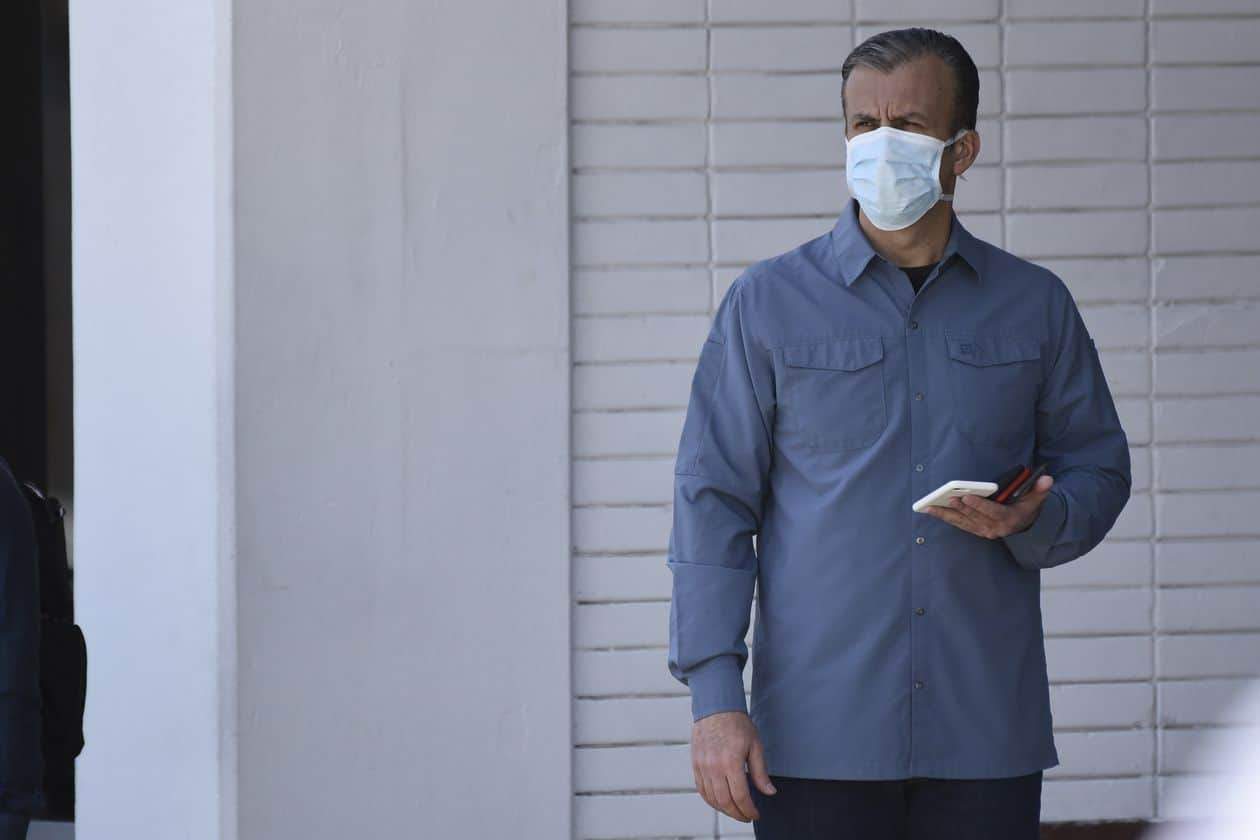Venezuela Appoints Alleged Drug Trafficker as Oil Minister
Tuesday, April 28, 2020
Categories: ASCF News Emerging Threats Economic Security Energy Independence

Venezuelan President Nicolás Maduro on Monday appointed a close ally who is accused by the U.S. of drug trafficking to lead the nation’s decaying oil industry amid tightening international sanctions, nationwide fuel shortages and plunging crude production.
As oil minister, Tareck El Aissami will be in charge of reorganizing Venezuela’s energy sector, according to the government’s Official Gazette. A longtime Socialist Party loyalist and a top economic adviser to Mr. Maduro, Mr. El Aissami, 45 years old, takes over as Venezuela struggles to stay afloat economically. Oil production has fallen to 600,000 barrels a day from about 3.5 million barrels daily before Mr. Maduro’s predecessor, Hugo Chávez, won office in 1998.
An oil industry long hobbled by corruption and mismanagement has been hit more recently by U.S. sanctions that have effectively barred major oil players from pumping or transporting Venezuelan crude, a move designed to financially cut off Mr. Maduro’s authoritarian regime. Fuel imports have fallen precipitously, forcing Venezuelans to wait hours outside gas stations to fill their tanks.
In 2017, the U.S. sanctioned Mr. El Aissami, adding him to a list of alleged narcotics kingpins. In March, the U.S. announced indictments against Mr. Maduro and other senior officials for allegedly coordinating drug shipments through Venezuela with a Colombian guerrilla group that Washington has blacklisted as a terrorist organization. In the indictment, Mr. El Aissami is accused of activities that violated the earlier sanctions against him.
Mr. El Aissami, who is also vice president for the economy and industry minister, has denied the charges. He calls them an effort by Washington to besmirch Venezuela’s leftist government and destabilize Mr. Maduro.
In Venezuela, the opposition criticized the government for the appointment.
“Maduro is distributing the spaces of power to terrorist groups, in exchange for keeping himself in power,” said Gustavo Marcano, an adviser to Juan Guaidó, whom the U.S. recognizes as Venezuela’s legitimate president.
On Monday, Mr. Maduro also appointed Asdrubal Chavez as head of state energy company Petróleos de Venezuela SA, or PdVSA. A cousin of the late leftist leader, Mr. Chavez had long served as a PdVSA director, overseeing a vast refining network that once had the capacity to process 1.3 million barrels of oil a day. Mr. El Aissami replaced National Guard General Manuel Quevedo, who had been oil minister since 2017.
Today, the refineries have long fallen into abandonment, oil union leaders say, and U.S. sanctions make gasoline harder to import. Those who want to avoid long gas lines can buy black market gasoline. The fuel shortages have not only limited public transportation but the vehicles used by food transporters, creating another misery for a country grappling with new coronavirus pandemic.
The government said last week that it is importing fuel-processing components through commercial flights from Iran, though energy analysts say the shipments are too small to resolve the acute nationwide shortages.
Industry leaders say Mr. El Aissami was a leading promoter of the government’s experiment last year to loosen restrictions on the economy, such as price controls and tariffs, in an effort to jump-start growth. The experiment, however, appears to have been shelved. On Monday, the Industry Ministry that Mr. El Assaimi runs as minister resumed price controls on food staples.
Photo: Tareck El Aissami, seen last month, was sanctioned by the U.S. in 2017, adding him to a list of alleged narcotics kingpins. - CARLOS BECERRA/BLOOMBERG NEWS
Link: https://www.wsj.com/articles/venezuela-appoints-alleged-drug-trafficker-as-oil-minister-11588032834











